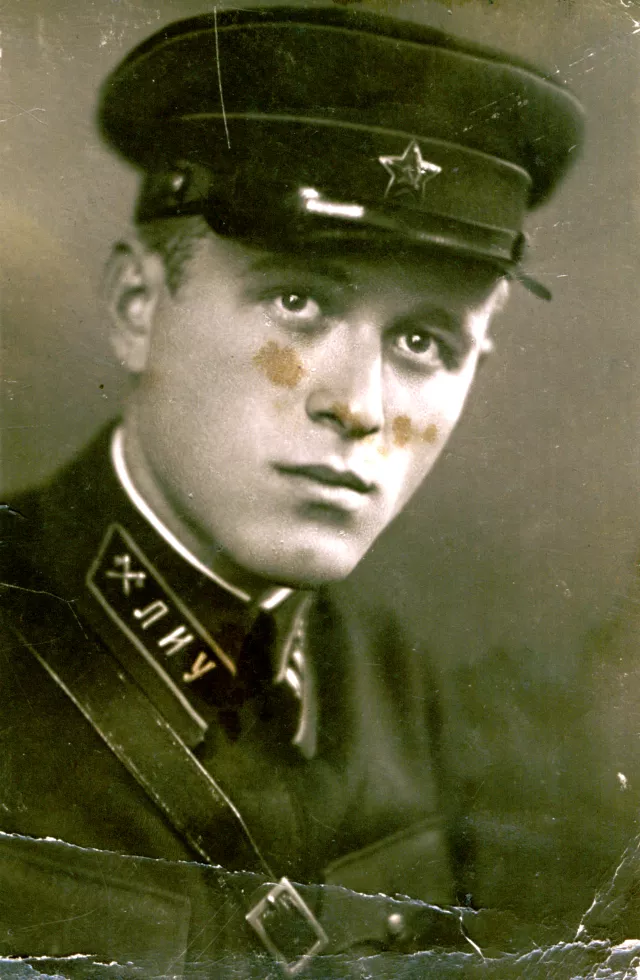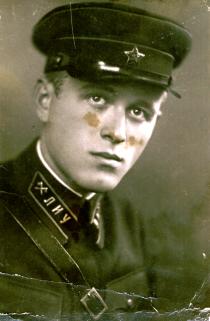This photo of me was taken in the Military Engineering College in Leningrad in 1937. I signed it ?To my dear brother-in-law, sister and niece? and sent it to my family in Yaruga.
I went to Kiev in 1932 and entered the Construction College. There were two departments in this college: a Jewish and a Ukrainian one. We studied the same subjects, only in different languages. There was no admission to the Jewish department, so I entered the Ukrainian one. I lived in the dormitory. I always missed home, but I understood that I had to get a profession. In the beginning I went to the railway station every morning to look at the sign ?Kiev-Mogilyov-Podolskiy? on the railcar, so that I could at least see the name of my hometown. Later I met new friends: Matvey Russanovskiy and Zinoviy Pugachevskiy - Jews, and some Ukrainian friends.
I became a Komsomol member, and we went to parades and for walks in Kiev together. I stopped observing Jewish holidays and traditions. It was out of fashion at the time. Besides, it was next to impossible to follow the kashrut rules at the dormitory. We were young and had a good appetite. We ate whatever we had. After finishing college I got a job assignment at the Khmelnik road construction site of the NKVD Road Construction Division. I worked for a year, but kept dreaming about the military uniform. I went to Leningrad and entered a military college there. I didn't tell my parents that I was going to Leningrad. When I told them that I had entered the college they got very upset, but they understood that I was old enough to make my own decisions. I finished a two-year advanced course in 1939. I got a job assignment in Field Engineer Battalion 239 in Chernigov.
About half a year or so later, our military unit was sent to Poland where, according to the Molotov-Ribbentrop agreement, the Soviet forces occupied a part of Poland and the Baltic republics. The military division from Kiev lost about 1,500 militaries. Our battalion had no casualties. The local population welcomed us warmly. The Jewish population talked to me. There was anti-Semitism in Poland, and it was a surprise to them to meet an officer that was a Jew. They couldn't believe that people had equal rights in the Soviet Union.
Simon Grinshpoon
The Centropa Collection at USHMM
The Centropa archive has been acquired by the United States Holocaust Memorial Museum in Washington, DC.
USHMM will soon offer a Special Collections page for Centropa.
Academics please note: USHMM can provide you with original language word-for-word transcripts and high resolution photographs. All publications should be credited: "From the Centropa Collection at the United States Memorial Museum in Washington, DC". Please contact collection [at] centropa.org.









